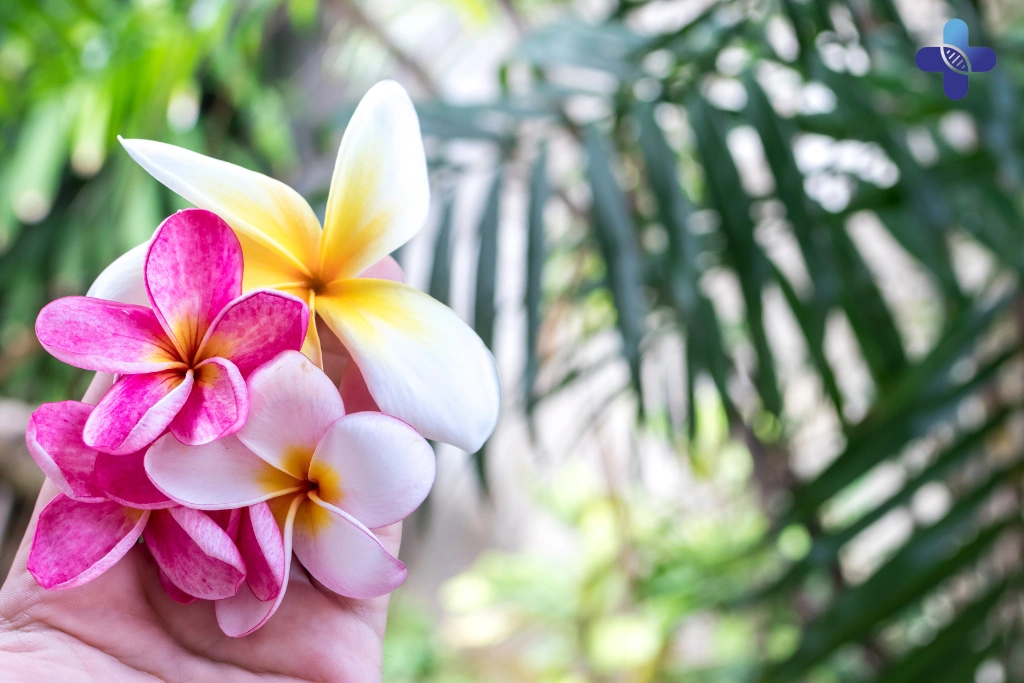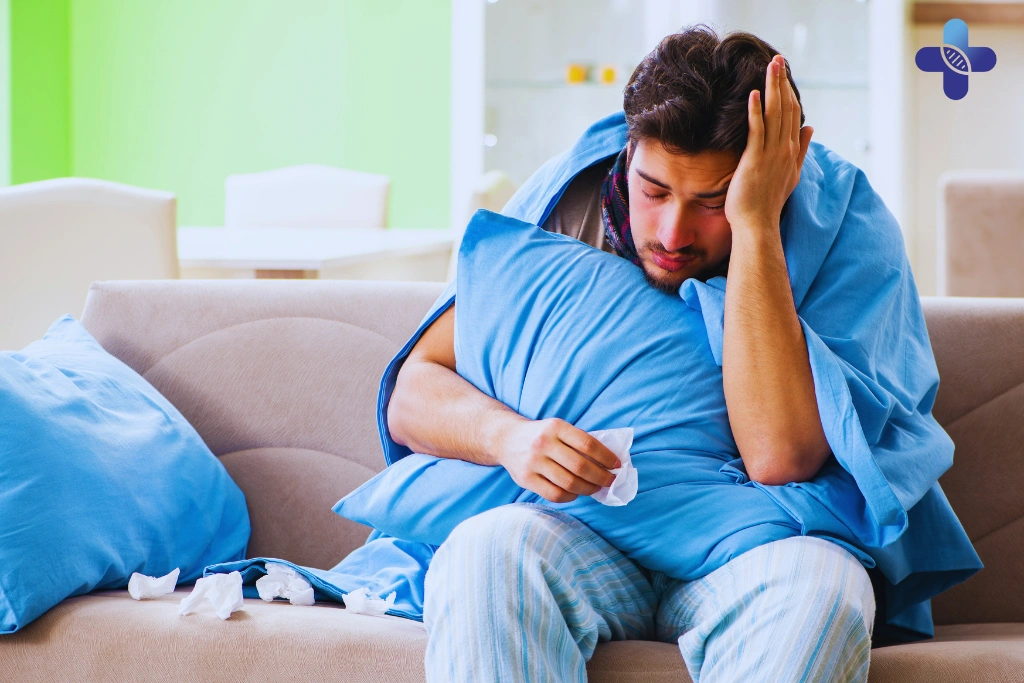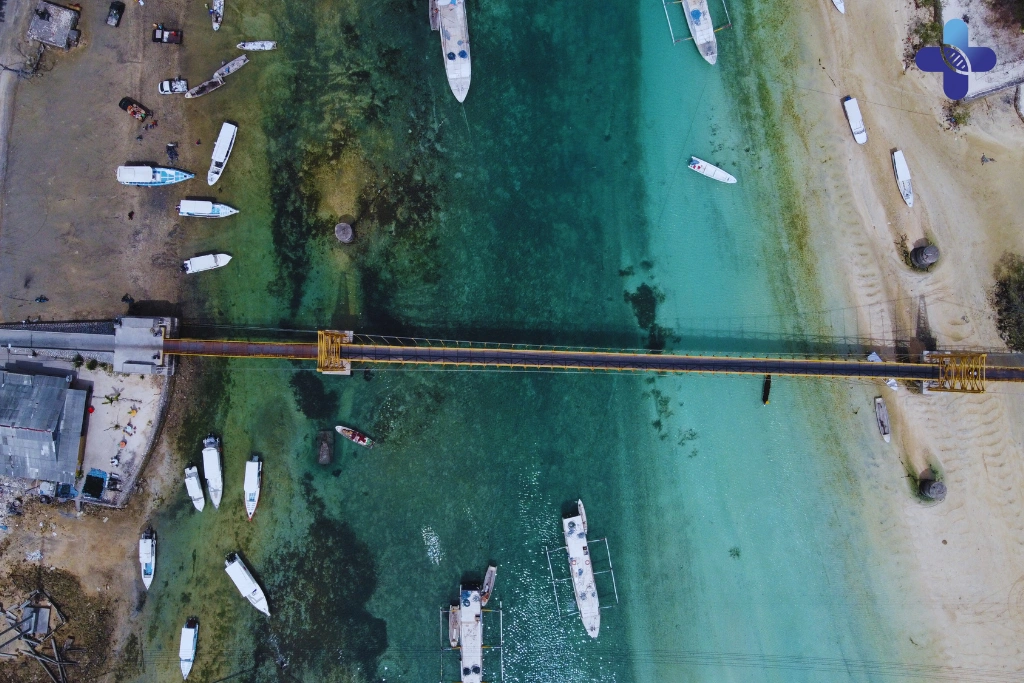Living in Bali may sound like a dream, with its golden beaches, warm sunshine, and vibrant culture—but beneath the postcard-perfect image lies a reality many newcomers overlook. The island’s tropical climate, while inviting, brings unique challenges that can affect your health if you are unprepared. From dehydration under the intense sun to exposure to mosquito-borne illnesses, understanding these tropical health risks in Bali is essential for anyone planning an extended stay. At Life Everyouth Bali, we combine medical expertise and local insight to help you enjoy the beauty of island living while safeguarding your well-being through trusted services at our Medical Clinic in Bali.
The Hidden Risks of Tropical Island Living

Bali has long captured the imagination of travelers with its pristine beaches, swaying palm trees, and year-round warm weather. Life here seems effortless—sunny mornings, fresh tropical fruits, and afternoons spent by the ocean. It’s a setting many dream of calling home, whether for a short holiday or a longer stay. But while the island’s beauty is undeniable, its tropical climate holds certain realities that go beyond the glossy travel brochures.
Behind the allure, Bali’s environment presents tropical health risks in Bali that every visitor and resident should be aware of. From heat-related illnesses and dehydration to mosquito-borne diseases like dengue and chikungunya, these risks can quickly disrupt your tropical adventure. At Life Everyouth Bali, our Medical Clinic in Bali helps you navigate these challenges with preventive care, timely diagnosis, and recovery treatments, ensuring you can embrace island living without compromising your health.
The Climate Factor – How Tropical Weather Affects Your Body
Living in a tropical destination like Bali means constant exposure to high temperatures, intense sunlight, and high humidity. While this environment can feel relaxing, it also places extra strain on your body’s natural cooling and hydration systems. The combination of heat and humidity makes it harder for sweat to evaporate, which slows your body’s ability to regulate temperature. Without the right precautions, these conditions can lead to dehydration, fatigue, and even heat exhaustion, especially for newcomers unaccustomed to tropical living.
For many visitors and residents, the challenge is balancing outdoor activities with adequate rest and hydration. Long days under the sun, whether exploring beaches or working remotely from outdoor spaces, can take a toll. At Life Everyouth Bali, our Medical Clinic in Bali offers preventive guidance and recovery treatments designed to help your body adapt to Bali’s climate safely. By understanding how the weather affects your health, you can enjoy the island’s beauty without letting heat-related conditions interrupt your plans.
Dehydration and Heat-Related Illnesses
In Bali’s tropical climate, dehydration can occur much faster than you might expect. The combination of heat and humidity means your body loses fluids through sweat without fully cooling down, putting you at risk for symptoms like dizziness, headaches, muscle cramps, and extreme fatigue. Left unaddressed, this can progress into heat exhaustion or even heatstroke, both of which require immediate medical attention. Tourists and expats are especially vulnerable during their first weeks as their bodies adjust to the new environment.
Recognizing early signs—such as excessive thirst, dry mouth, and reduced urine output—can help you act before the condition worsens. At Life Everyouth, we see many cases where IV Drip Therapy is an effective solution to restore fluids and electrolytes quickly, supporting faster recovery. As a trusted Bali Medical Clinic, we follow WHO and Kemenkes guidelines to ensure safe, evidence-based hydration treatments, allowing you to get back to enjoying your tropical days with renewed energy.
Impact on Skin and Immune System
Bali’s sun, heat, and humidity can be tough on your skin, leading to issues like heat rash, fungal infections, and slow-healing wounds. Constant sweating creates a moist environment that encourages bacterial and fungal growth, particularly in skin folds. Additionally, frequent sun exposure without proper protection can accelerate skin aging and increase the risk of sunburn. These conditions can be uncomfortable, disrupt daily life, and in some cases, require medical care.
Beyond the skin, prolonged exposure to tropical weather can also impact your immune system. Changes in hydration, diet, and sleep can make it harder for your body to fend off infections, leaving you more susceptible to colds, digestive problems, and tropical illnesses. At Life Everyouth Bali, our Medical Clinic in Bali provides tailored advice and treatments—from skin care to immune support—so you can maintain both your appearance and your overall health while living under the island sun.
Common Health Risks in Tropical Island Life

Life in Bali offers endless outdoor experiences, but the same environment that attracts travelers also presents certain health hazards. Warm temperatures and seasonal rains create ideal breeding grounds for disease-carrying mosquitoes, while varying standards of food and water hygiene can expose you to gastrointestinal illnesses. For many visitors, these risks are not immediately obvious, especially when caught up in the excitement of exploring a tropical paradise.
Understanding these common health challenges is key to enjoying your stay safely. At Life Everyouth Bali, our Medical Clinic in Bali treats both short-term visitors and long-term residents for conditions that are preventable with the right precautions. By recognizing early warning signs and seeking timely care, you can minimize disruptions to your tropical lifestyle while still making the most of Bali’s natural beauty. Many of these risks intensify during the wetter months, so it’s worth reading our practical guide on How to Stay Healthy During Bali’s Rainy Season to keep your health on track.
Mosquito-Borne Illnesses
Bali’s climate supports year-round mosquito activity, making illnesses such as dengue fever, chikungunya, and malaria a genuine concern. These diseases can cause symptoms like sudden fever, joint pain, headaches, and skin rashes, often escalating if left untreated. Dengue and chikungunya, in particular, are more common during the rainy season when stagnant water allows mosquito populations to surge. To learn more about chikungunya symptoms, prevention, and recovery, you can explore our detailed guide on Chikungunya in Bali.
Preventive measures—such as using mosquito repellent, wearing long sleeves, and ensuring proper window screens—are crucial to reducing your risk. You can also visit our resource on Understanding Mosquito-Borne Illnesses in Bali for a deeper look into how these illnesses spread and what you can do to protect yourself effectively.
Food and Waterborne Diseases
Food and waterborne illnesses remain one of the most common disruptions for visitors and residents alike. Contaminated water or improperly handled food can lead to conditions such as traveler’s diarrhea, food poisoning, or even more serious infections. Symptoms often include stomach cramps, vomiting, and diarrhea, which can quickly lead to dehydration if not addressed promptly. Street food, while delicious, can sometimes pose higher risks if hygiene practices are not followed.
Choosing reputable dining establishments and drinking only bottled or filtered water are simple yet effective safeguards. At Life Everyouth Bali, our Medical Clinic in Bali offers rapid rehydration therapies, including IV Drip Therapy, for those recovering from gastrointestinal illnesses. This approach helps restore fluid balance and energy levels faster, so you can return to enjoying your time on the island without prolonged downtime.
How to Protect Yourself While Enjoying Tropical Life

Living in Bali’s tropical climate doesn’t have to mean compromising your health. By adopting daily habits that prioritize hydration, balanced nutrition, and preventive care, you can significantly reduce the likelihood of falling ill. Small, consistent choices—like choosing clean water sources, eating nutrient-rich meals, and protecting yourself from excessive sun exposure—help your body adapt and thrive in this environment.
At Life Everyouth Bali, our Medical Clinic in Bali emphasizes proactive wellness, offering both preventive advice and medical support. Whether you’re here for a short holiday or a long-term stay, incorporating these health-conscious routines will allow you to fully enjoy Bali’s beauty without unnecessary health setbacks.
Daily Hydration and Nutrition Habits
The foundation of staying healthy in a tropical climate is keeping your body hydrated and well-nourished. In Bali’s heat and humidity, you lose fluids more quickly through sweat, making it essential to drink plenty of clean water and supplement with electrolytes. Eating a balanced diet rich in fresh fruits, vegetables, and lean proteins also supports your immune system and overall energy levels.
Simple habits—such as carrying a reusable water bottle, avoiding overly processed foods, and consuming hydrating snacks like watermelon or cucumber—go a long way in preventing fatigue and heat-related illnesses. At Life Everyouth, we remind our patients that good hydration and nutrition are your first line of defense against the tropical health risks in Bali.
When to Consider IV Drip Therapy
Even with the best preventive measures, there may be times when you need a faster recovery option. IV Drip Therapy can be highly effective for replenishing fluids, electrolytes, and essential nutrients, especially after prolonged sun exposure, gastrointestinal illness, or mild infections. It works faster than oral hydration, delivering the necessary support directly into your bloodstream for quicker results.
At Life Everyouth Bali, our Bali Medical Clinic offers professional IV Drip Therapy administered by licensed medical staff following WHO and Kemenkes standards. Whether you’re dealing with dehydration, jet lag, or a mild infection, our team can provide safe and efficient treatment wherever you are on the island. Recover faster and stay energized with our professional IV Drip Therapy, available anywhere in Bali.
Conclusion Hidden Tropical Health Risks in Bali (2025)

Bali’s tropical charm offers a lifestyle filled with sunshine, ocean breezes, and vibrant culture—but it also comes with unique health challenges that shouldn’t be ignored. From mosquito-borne illnesses to food and water hygiene issues, as well as the constant risk of dehydration in the heat, understanding and preparing for these tropical health risks in Bali allows you to enjoy the island with confidence. Awareness is your strongest tool, enabling you to make informed choices that keep you safe while embracing everything Bali has to offer.
At Life Everyouth Bali, our mission is to help you maintain that balance—living your best tropical life without compromising your well-being. As a trusted Medical Clinic in Bali, we provide preventive care, early diagnostics, and recovery treatments tailored to the island’s climate and lifestyle. Whether you’re here for a few weeks or building a life in paradise, we’re here to ensure your health is supported every step of the way.
Frequently Asked Questions (FAQ) Hidden Tropical Health Risks in Bali (2025)
Are tropical health risks in Bali high?
Tropical health risks in Bali are present, but their severity largely depends on your level of awareness and preventive habits. Risks such as mosquito-borne illnesses, dehydration, and foodborne diseases can be significantly reduced by following basic safety measures. These include using mosquito repellent, staying hydrated, practicing proper food hygiene, and seeking early medical attention when symptoms appear. While the risks are real, they are manageable for those who take a proactive approach to their health.
Is mosquito protection necessary year-round?
Yes, mosquito protection is essential in Bali throughout the year because the warm, humid climate supports mosquito breeding in all seasons. Even during the dry season, small pockets of standing water can serve as breeding sites. Using repellents, wearing long sleeves and pants, and ensuring your accommodation has proper screens or nets can greatly reduce your chances of being bitten. Prevention is always easier and safer than treating mosquito-borne diseases after infection.
Can tropical heat cause serious illness?
Absolutely. The tropical heat in Bali can lead to serious conditions like heat exhaustion and heatstroke if not managed properly. Prolonged exposure to high temperatures without adequate hydration can cause dizziness, nausea, rapid heartbeat, and in severe cases, organ damage. It’s important to rest in shaded or air-conditioned areas during peak heat, drink plenty of water, and avoid overexertion, especially for newcomers whose bodies have not yet acclimated to the climate.
Are food and water safe in Bali?
Food and water in Bali are generally safe when sourced from reputable establishments that follow proper hygiene standards. However, water from taps is not recommended for drinking, and some street food vendors may not maintain strict cleanliness. Choosing bottled or filtered water, eating at well-reviewed restaurants, and avoiding raw or undercooked food can significantly reduce the risk of foodborne illness. Paying attention to where and what you eat is a simple way to protect your health.
How can I avoid skin problems in the tropics?
Skin problems such as rashes, fungal infections, and sunburn are common in tropical climates but can be avoided with consistent care. Keeping your skin clean and dry helps prevent bacterial and fungal growth, while wearing breathable, moisture-wicking clothing reduces sweat buildup. Applying sunscreen daily and seeking shade during peak sunlight hours can protect against sunburn and premature aging. Regularly changing damp clothing, especially after swimming or sweating, is also important for maintaining healthy skin.
Is IV Drip Therapy a common service in Bali?
Yes, IV Drip Therapy is widely available in Bali and is a popular option for both locals and tourists. It is often used for rapid hydration, recovery from mild illnesses, and boosting energy levels. The service is offered at many modern clinics, with treatments administered by licensed medical professionals. This makes it a convenient and effective choice for those experiencing dehydration, fatigue, or nutrient deficiencies during their stay.
Can tourists easily access medical care?
Tourists in Bali can access medical care easily, especially in popular areas where clinics cater to international patients. Many facilities offer English-speaking staff, modern equipment, and treatments designed to meet global healthcare standards. Services range from general check-ups to emergency care, and most clinics accept international travel insurance. Having a trusted clinic’s contact information on hand can save time and stress in case of illness or injury.
Do I need vaccines before moving to Bali?
While there are no mandatory vaccines for entering Bali, it is recommended to be up to date on vaccinations such as hepatitis A, hepatitis B, and typhoid. These diseases are more common in tropical regions and can be prevented with immunization. Travelers planning extended stays or rural visits may also consider vaccines for Japanese encephalitis and rabies. Consulting a travel health specialist before departure ensures you receive the most relevant recommendations for your itinerary.
Is chikungunya common in Bali?
Chikungunya cases do occur in Bali, particularly during the rainy season when mosquito activity increases. While outbreaks are less frequent than dengue, the symptoms—fever, severe joint pain, and rash—can still be debilitating. Awareness and prevention are key, as there is no specific cure for chikungunya. Protective measures such as using repellents, sleeping under nets, and reducing mosquito breeding sites around your home or accommodation remain the best defenses.
Where can I get IV Drip Therapy?
IV Drip Therapy is available at many reputable medical clinics across Bali, especially in tourist hubs and expat-friendly neighborhoods. These clinics offer various formulas tailored to different needs, including hydration, immune support, and recovery from illness. Treatments are typically performed in clean, comfortable settings by qualified nurses, and many clinics also provide on-call services that deliver care directly to your villa or hotel for maximum convenience.
